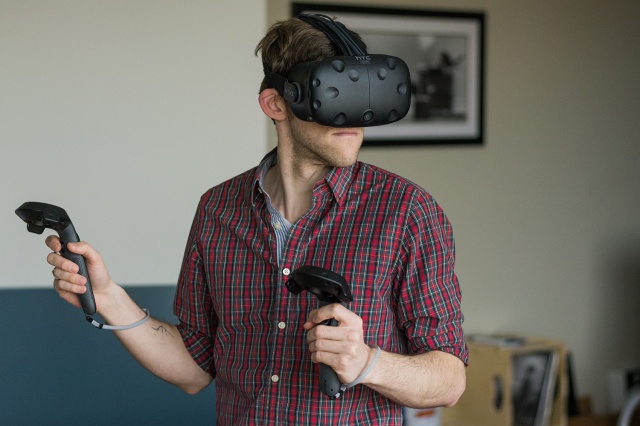
Having split off its virtual reality business into its own separate entity last year, HTC is making a big drive for virtual reality in 2017. Part of that has been in the continuing evolution of its Vive headset, but also it seems in the creation of a new, mobile-focused headset.
If effective, this move should help sell the U Ultra smartphone and provide additional value for those who were already planning to purchase it. More importantly though, it will give HTC a more affordable VR solution for those who cannot afford a headset like the HTC Vive, or the gaming PC required to run it.
While this will give it a comparable product to the Gear VR — which for non-Google Cardboard-type headsets, is the most popular of them all — HTC does suggest that its mobile VR solution will be more than just a “phone slapped into a headset.” While HTC didn’t give much detail about what that might be, in its chat with CNET it reiterated that we can expect something a little different with its mobile alternative to the Vive.
Speculating about what HTC’s mobile virtual reality solution might be like, we can assume from its mention of U Ultra support that it will still use the phone itself as the VR display. While it’s possible that the compatibility with the handset could mean that it plugs in and uses the phone’s processing for a secondary display in the headset, or uses the touchscreen as a controller, that seems unlikely.
Perhaps what HTC will look to offer with its mobile headset is something we have yet to see from the others. Something like inside-out positional tracking perhaps.
What kind of innovation do you think HTC could bring to the mobile VR space?


